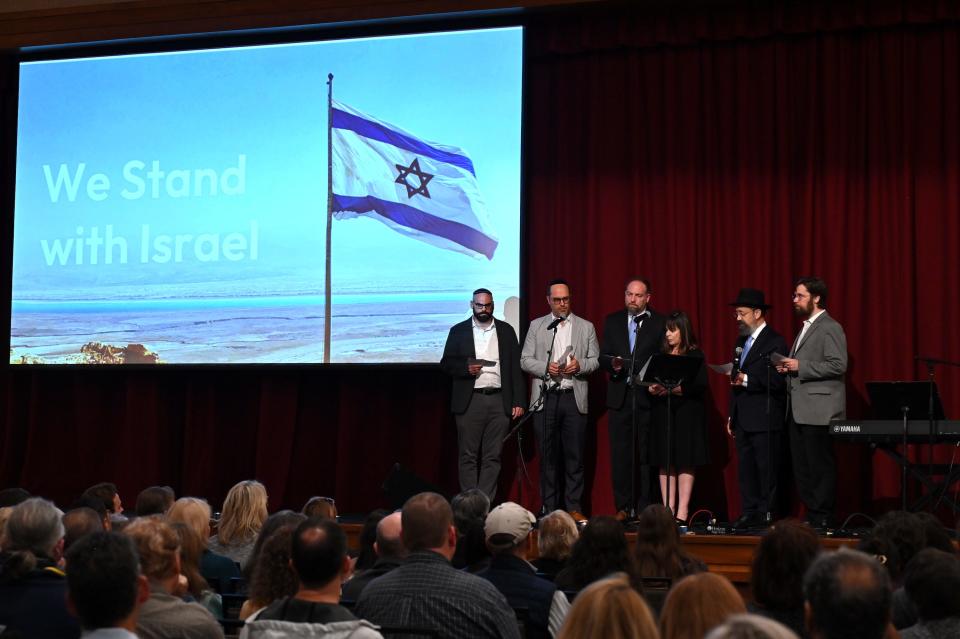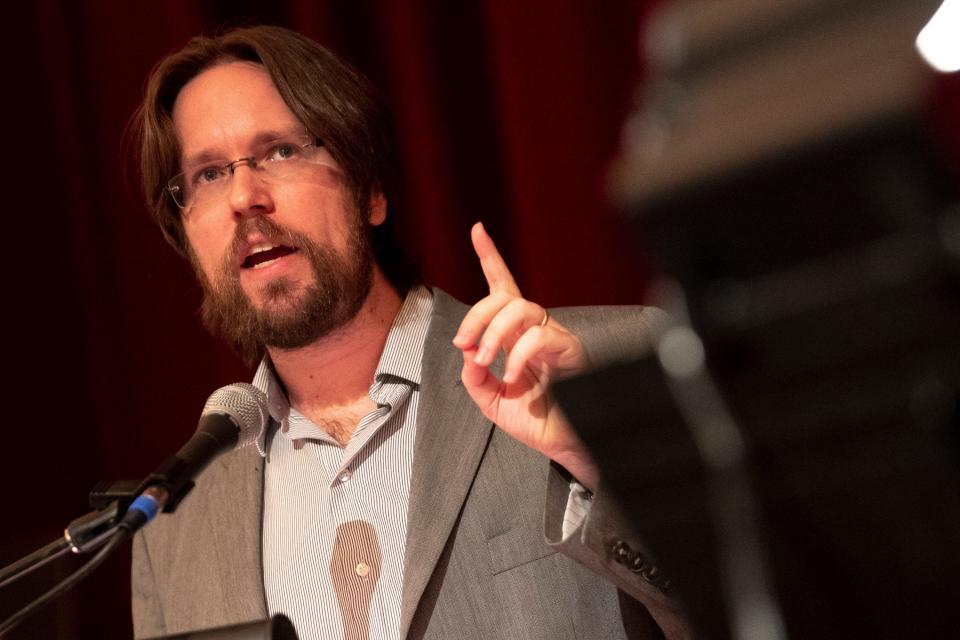Resolutions with ambiguous language on Israel-Hamas war will not advance amity in Nashville
Re: "If Nashville calls for cease-fire in Israel-Hamas war, it should be for the right reasons," June 23.
The Bible teaches us that words hold immense power. In the opening chapter of the Torah, we read that God created the world by the sheer power of speech. In Hebrew, the words for soul (neshama) and breathing (neshima) share the same root. When we speak, we embody our souls in words.
The problem is that language is never transparent, and words carry multiple meanings. When we speak, our words often convey more than we intend. Meaning is created in the encounter between what is said and what is heard, between what is written and what is read.
Fifty years ago, Henry Kissinger introduced the concept of constructive ambiguity to facilitate complex negotiations. The point was to use ambiguous words to avoid excessive discomfort in either of the negotiating parties. By keeping it nebulous, the hope was to move forward with the conversation.
However, when discussing the Middle East conflict here in Nashville, constructive ambiguity might not be the best approach. To bridge widening gaps between different communities, what we need is moral clarity, constructive precision and spiritual strength.
We need to examine the use of the words 'genocide' and 'occupation'
My goal here is to explain what triggers some of the anxieties in my own community when dealing with this issue, and how the misuse of words can have a terrible effect when trying to find some common ground. For example, it is hard for me to ignore when Metro council members and other leaders in town speak about genocide to describe the war in Gaza.

The portrayal of Israel as a genocidal entity seems to be more in line with a will to demonize the Jewish state than to remain faithful to the truth. If there’s anyone with genocidal tendencies in the Middle East, that would be Hamas with the backup of Iran.
Something similar happens with the notion of occupation. The word is used in various discourses, tweets, and Instagram posts.
However, "occupation" is a very ambiguous term, so I often find myself wanting to know what exactly they are referring to. If they are talking about Gaza, Israel unilaterally left the strip in 2005 (and soon after Hamas took hold of it and invested millions of dollars in tunnels and rockets).
Regarding the rest of the territory, are they talking about the ‘67 lines? The ‘48 lines? Or are Tel Aviv, Jerusalem and Haifa also understood as occupied lands? If those pushing for peace hold the belief that “from the river to the sea Palestine should be free,” then the pursuit of a ceasefire seems to be a tactical step to gain time to regroup and rearm, hoping to eventually achieve the eradication of Israel from the map.
Needless to say, that is morally unacceptable.
To deny Zionism is to deny the Jewish State
Finally, it is interesting to observe how people make use of the word Zionism. In recent months, many voices have attempted to turn "Zionism" into an insult in order to delegitimize the Jewish State. To the contrary, the term comes from the Hebrew "Zion," which is one of the Biblical words used to speak about Jerusalem and Israel and it speaks to the profound attachment and love that Judaism has always had to that land.
Zionism, then, is the unwavering belief that Jews have the right to self-determination and self-defense and that the State of Israel is the historical homeland of the Jewish people.
Most Jews in Nashville are deeply Zionist, and a big part of our identity is tied to the existence of the State of Israel, even when some of us may disagree with specific policies enacted by its government. You can be a critical Zionist, but being an anti-Zionist is a different matter entirely. It is impossible to achieve peace with people who don’t believe that Israel has the right to exist.
As a proud Zionist, I continue to resonate with the words of Israel’s declaration of independence and its longing for a sustainable peace and mutual recognition between the country and its many neighbors. That peace, combined with a love for life and a fierce commitment to never give up hope, remains at the heart of the Zionist enterprise.
In these challenging times, we need moral clarity and spiritual strength because both the children of Gaza and Tel Aviv deserve better. So, instead of public resolutions that won’t affect any real change, we should begin by engaging in honest and clear conversations between traumatized communities experiencing sorrow and pain.
To move forward as a united city, we must first recognize our shared grief, and then foster a measure of empathy and understanding to support one another. More than anything else, our city needs a safe space away from the spotlights where we can come together and gradually rebuild some of the missing trust. I believe that this is absolutely possible. As a man of faith, I know that it is entirely up to us.

Rabbi Joshua Kullock is the spiritual leader of West End Synagogue.
This article originally appeared on Nashville Tennessean: Israel-Hamas war: We cannot be ambiguous when discussing the conflict

